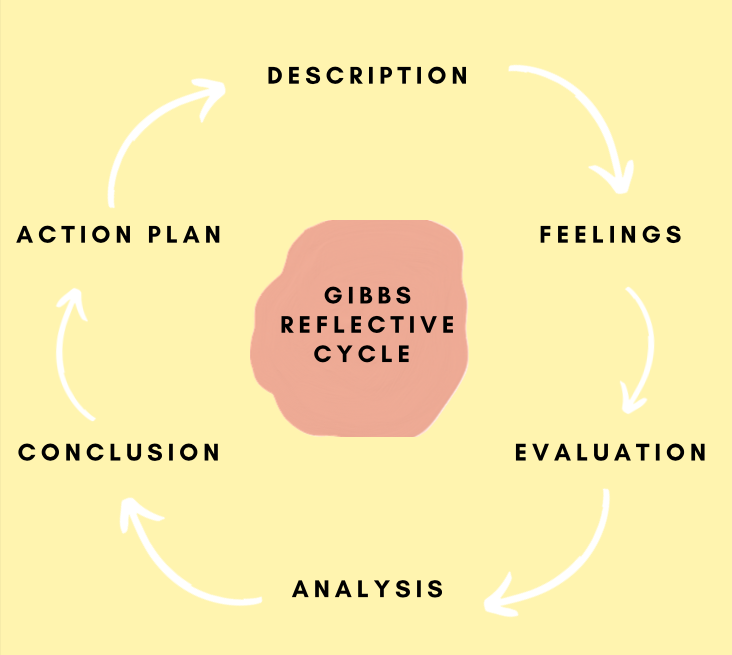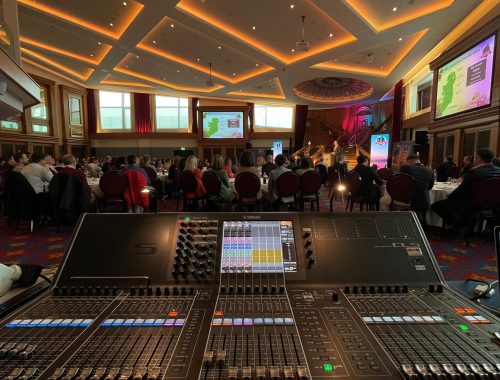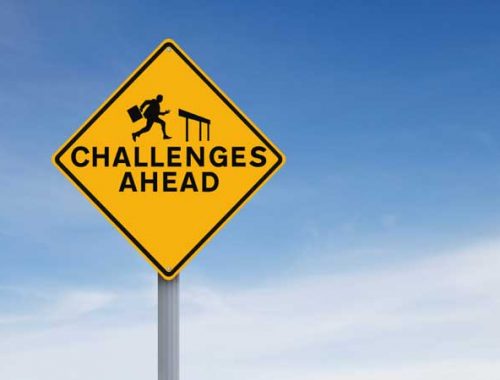Running out of Steam

With most creative jobs, there will come a point where you get stuck. Maybe you hit a creative block, or just run out of motivation altogether. Although burnout isn’t a physical challenge, it is still mentally difficult to work around. This is a challenge which I experienced during my work placement with ProfileTree, a digital marketing and content creation website. In this blog post I will use Gibbs’ Model of Reflection to reflect on my struggles and see how I can learn from them in the future. (Fig 1)
Description and Feelings:
My official job title with ProfileTree was “Content Creator”. This meant that I would be making videos from scratch for their client, Connolly Cove, who specialise in tourism-based content. As this placement was completely remote, I could complete the work in my own time. We would meet via Zoom once a week to discuss what we were working on and if we had any questions, but other than that I was left to my own devices. I was also given almost free-reign for the content of the videos I would be making, meaning that I could choose what I would film, and the only idea they provided was Belfast’s ‘The Golden Mile’. This seemed too good to be true at the beginning, as I would be able to record places that I liked to go to and wanted to show off! It would also allow me to build up my portfolio of work, something which is necessary for the line of work which I want to go into.

However, after many weeks of producing many videos of City Hall, Botanic Gardens, and Titanic Quarter, I began to lose inspiration and motivation. The videos which I had produced were not necessarily difficult to make, and the editing style which they wanted for their social media channels was very simple. This meant that I wasn’t able to challenge myself technically in any way. It was already December and being only halfway through my placement, I felt like I had so much more to do, but no means or ideas of how to complete it! There was not much else that I could film without travelling extreme distances, which was often difficult to plan around things such as previous commitments and weather. As well as this, I began to feel extremely demotivated, and the thought of having to commit many hours to filming and editing one video per week was mentally and emotionally draining. (Fig 2)
Yes. I had encountered the dreaded creative burnout.
Evaluation and Analysis:
While producing video content for ProfileTree, I feel that this experience challenged me in more ways than one. I think that the creative burnout which I experienced happened because I was expecting myself to produce at least once video a week, and also because I didn’t communicate clearly enough with my placement manager, Gabbi, about the struggles I was facing. I overworked myself, leading me to briefly dislike my placement for all the wrong reasons. In this regard, I feel that I should have pushed for more feedback on my already existing videos, or requested to do something more exciting editing-wise in order to challenge myself and keep things interesting. I also should have asked for help on ideas of what to film earlier in the process, as it would have freed up space in my mind to actually plan and organise videos, and allowed me to complete my placement earlier.
“Organizations that develop effective communication processes are more likely to both have more positive work environments and be more effective in achieving their objectives.”
Morley, 2002.
As difficult as it may have been, I think the challenges I faced were beneficial and allowed me to further develop critical skills, such as skills in organisation and time management, thinking creatively and independently, as well as communication. All of these skills are incredibly important for a creative job such as this, as well as future jobs I will hopefully encounter in the film industry.
Conclusion and Action Plan:
Creative burnout can be a difficult thing to overcome as it isn’t a physical obstacle. After scouring through many self-help websites, the most common pieces of advice were to take a break, ask for support, or to just keep working through it until you break free. I took this advice, starting with a break. For 2 weeks over Christmas I put video creation out of my head completely, and by the time the new year rolled around I was ready to jump back into it with a fresh mindset. I started the year by asking for help on what to create, and Gabbi was extremely helpful when providing information. I had originally thought that we were limited to videos on Belfast and ‘the Golden Mile’, but it turns out that we could film wherever we wanted to! This opened many new doors for video ideas. She also gave me the idea of repurposing old videos and turning them into something new, such as ‘Reels’ for Instagram. From here, I was able to plan ahead for what videos I wanted to create, as Amanda Willet (2013) explains that, “The more organised you are, the more head space you will have to be creative”. From January to March I have made videos on many places from Gosford Forest Park to Portrush and Ballintoy Harbour.
I now know that my biggest weakness was communication and asking for help, so if this creative block was to happen again, I will be able to overcome it easier and much faster. This will allow me to get back into creating videos, which I greatly enjoy doing. I also now realise that it isn’t good or beneficial to overwork yourself, and you need to manage your time effectively in order to keep yourself from going insane burnout.
Bibliography:
Figure 1 – Gibbs Reflective Cycle adapted by me.
Figure 2 – https://www.shutterstock.com/image-vector/emotional-burnout-woman-sitting-her-working-1554515870
Gibbs, G. (1988) Learning by Doing: A Guide to Teaching and Learning Methods. Oxford: Oxford Further Education Unit.
Morely, D., Shockley-Zalabak, P. and Cesaria, R., 2002. Organizational influence processes : perceptions of values, communication and effectiveness. Studies in Communication Sciences : journal of the Swiss Association of Communication and Media Research, 1(1), p.69.
Willett, Amanda. Media Production: A Practical Guide to Radio & TV. United Kingdom, Taylor & Francis, 2013.



